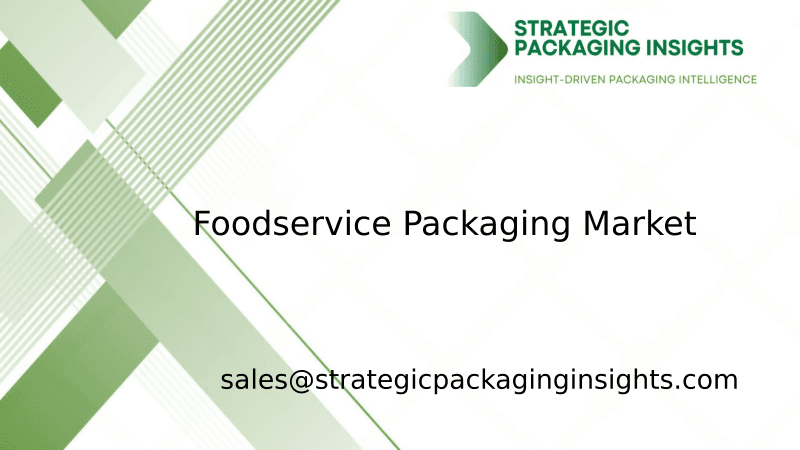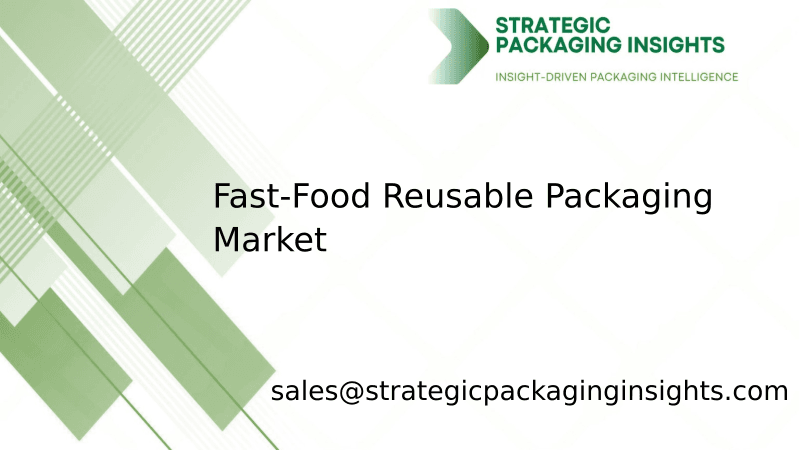- Home
- Packaging Products
- Seal Type Stainless Steel Drum Market Size, Future Growth and Forecast 2033
Seal Type Stainless Steel Drum Market Size, Future Growth and Forecast 2033
Seal Type Stainless Steel Drum Market Segments - by Material (304 Stainless Steel, 316 Stainless Steel, Others), Application (Chemical, Food & Beverage, Pharmaceutical, Oil & Gas, Others), Capacity (Up to 100 Liters, 100-200 Liters, Above 200 Liters), End-User (Industrial, Commercial, Others) - Market Dynamics, Growth Opportunities, Strategic Drivers, and PESTLE Outlook (2025–2033)
Seal Type Stainless Steel Drum Market Outlook
The Seal Type Stainless Steel Drum market was valued at $1.2 billion in 2024 and is projected to reach $2.5 billion by 2033, growing at a CAGR of 8.5% during the forecast period 2025-2033. This market is experiencing significant growth due to the increasing demand for durable and corrosion-resistant packaging solutions across various industries. The chemical and pharmaceutical sectors, in particular, are driving the demand for stainless Steel Drums due to their need for safe and secure storage and transportation of hazardous materials. Additionally, the food and beverage industry is adopting these drums for their ability to maintain product integrity and prevent contamination. The market is also benefiting from advancements in manufacturing technologies that enhance the durability and efficiency of stainless steel drums.
Report Scope
| Attributes | Details |
| Report Title | Seal Type Stainless Steel Drum Market Size, Future Growth and Forecast 2033 |
| Base Year | 2024 |
| Historic Data | 2017-2023 |
| Forecast Period | 2025-2033 |
| Number of Pages | 231 |
| Material | 304 Stainless Steel, 316 Stainless Steel, Others |
| Application | Chemical, Food & Beverage, Pharmaceutical, Oil & Gas, Others |
| Capacity | Up to 100 Liters, 100-200 Liters, Above 200 Liters |
| End-User | Industrial, Commercial, Others |
| Customization Available | Yes* |
Opportunities & Threats
One of the key opportunities in the Seal Type Stainless Steel Drum market is the growing emphasis on sustainability and eco-friendly packaging solutions. As industries worldwide strive to reduce their carbon footprint, stainless steel drums offer a reusable and recyclable option that aligns with these goals. This trend is particularly prominent in the food and beverage and pharmaceutical sectors, where regulatory pressures and consumer preferences are pushing for more Sustainable Packaging. Furthermore, the increasing globalization of trade is creating a demand for robust packaging solutions that can withstand long-distance transportation, further boosting the market for stainless steel drums.
Another opportunity lies in the technological advancements in drum manufacturing processes. Innovations such as automated welding and precision engineering are enhancing the quality and performance of stainless steel drums, making them more appealing to end-users. These advancements are also reducing production costs, allowing manufacturers to offer competitive pricing and expand their market reach. Additionally, the rise of e-commerce and online retail is driving the need for efficient and reliable packaging solutions, presenting a lucrative opportunity for stainless steel drum manufacturers to cater to this growing demand.
However, the market faces certain restraints, such as the high initial cost of stainless steel drums compared to alternative packaging materials like plastic or fiber. This cost factor can be a deterrent for small and medium-sized enterprises with limited budgets. Additionally, fluctuations in raw material prices, particularly stainless steel, can impact the profitability of manufacturers. The market also faces competition from other packaging solutions that offer similar benefits at a lower cost, which could hinder the growth of stainless steel drums in certain applications.
The Seal Type Stainless Steel Drum market is characterized by a competitive landscape with several key players vying for market share. The market is dominated by a few large companies that have established a strong presence through extensive product portfolios and global distribution networks. These companies are focusing on strategic partnerships and collaborations to expand their market reach and enhance their product offerings. Additionally, they are investing in research and development to innovate and improve the quality and performance of their stainless steel drums.
Major companies in the market include Greif Inc., Mauser Group B.V., and SCHÜTZ GmbH & Co. KGaA, which hold significant market shares due to their extensive experience and expertise in the packaging industry. Greif Inc. is known for its wide range of industrial packaging solutions, including stainless steel drums, and has a strong presence in North America and Europe. Mauser Group B.V. is a leading provider of industrial packaging solutions with a focus on sustainability and innovation, offering a comprehensive range of stainless steel drums for various applications.
SCHÜTZ GmbH & Co. KGaA is another major player in the market, renowned for its high-quality packaging solutions and commitment to sustainability. The company has a global presence with manufacturing facilities in multiple countries, allowing it to cater to a diverse customer base. Other notable companies in the market include Balmer Lawrie & Co. Ltd., Skolnik Industries, Inc., and The Metal Drum Company, each contributing to the competitive dynamics of the market through their unique product offerings and strategic initiatives.
Key Highlights Seal Type Stainless Steel Drum Market

- Increasing demand for corrosion-resistant and durable packaging solutions across various industries.
- Growing emphasis on sustainability and eco-friendly packaging options.
- Technological advancements in drum manufacturing processes enhancing quality and performance.
- Rising globalization of trade driving demand for robust packaging solutions.
- High initial cost of stainless steel drums compared to alternative materials.
- Fluctuations in raw material prices impacting profitability.
- Competition from alternative packaging solutions offering similar benefits at lower costs.
- Strategic partnerships and collaborations among key players to expand market reach.
- Investment in research and development to innovate and improve product offerings.
- Strong presence of major players in North America and Europe.
Premium Insights - Key Investment Analysis
The Seal Type Stainless Steel Drum market is witnessing significant investment activity, driven by the growing demand for durable and sustainable packaging solutions. Venture capital firms and private equity investors are increasingly focusing on companies that offer innovative and eco-friendly packaging options. This trend is particularly evident in the food and beverage and pharmaceutical sectors, where regulatory pressures and consumer preferences are driving the need for sustainable packaging solutions. Additionally, mergers and acquisitions are a common strategy among key players to expand their product portfolios and enhance their market presence.
Investment valuations in the market are on the rise, reflecting the growing interest in stainless steel drum manufacturers. Investors are attracted to the market's potential for high returns on investment, driven by the increasing demand for robust and reliable packaging solutions. Emerging investment themes include the development of advanced manufacturing technologies and the adoption of sustainable practices in drum production. However, investors must also consider potential risks, such as fluctuations in raw material prices and competition from alternative packaging solutions.
Strategic rationale behind major deals in the market often revolves around expanding geographic reach and enhancing product offerings. Companies are focusing on acquiring or partnering with regional players to strengthen their presence in key markets and tap into new customer segments. High-potential investment opportunities exist in regions with growing industrial activities and increasing demand for durable packaging solutions. The Asia Pacific region, in particular, is attracting significant investor interest due to its expanding manufacturing sector and rising demand for stainless steel drums.
Seal Type Stainless Steel Drum Market Segments Insights

Material Analysis
The Seal Type Stainless Steel Drum market is segmented by material into 304 Stainless Steel, 316 Stainless Steel, and others. The 304 Stainless Steel segment is expected to dominate the market due to its excellent corrosion resistance and affordability. This material is widely used in the food and beverage industry for its ability to maintain product integrity and prevent contamination. The 316 Stainless Steel segment is also gaining traction, particularly in the pharmaceutical and chemical industries, where higher corrosion resistance is required. The demand for other stainless steel materials is driven by specific application requirements and cost considerations.
Trends in the material segment include the increasing adoption of high-performance stainless steel alloys that offer enhanced durability and resistance to harsh environments. Manufacturers are focusing on developing innovative materials that meet the stringent requirements of various industries while offering cost-effective solutions. Customer demand for stainless steel drums is driven by the need for reliable and long-lasting packaging solutions that can withstand challenging conditions during storage and transportation.
Application Analysis
The application segment of the Seal Type Stainless Steel Drum market includes chemical, food & beverage, pharmaceutical, oil & gas, and others. The chemical industry is a major driver of market growth, as stainless steel drums are essential for the safe storage and transportation of hazardous materials. The food and beverage industry is also a significant contributor to market demand, with stainless steel drums being used to maintain product quality and prevent contamination. The pharmaceutical sector is increasingly adopting stainless steel drums for their ability to meet stringent regulatory requirements and ensure the safety of sensitive products.
Trends in the application segment include the growing demand for customized stainless steel drums that cater to specific industry needs. Manufacturers are focusing on developing application-specific solutions that offer enhanced performance and reliability. Customer demand is influenced by factors such as regulatory compliance, product safety, and the need for efficient and cost-effective packaging solutions. The oil and gas industry is also a key market for stainless steel drums, driven by the need for durable and corrosion-resistant packaging solutions for transporting and storing petroleum products.
Capacity Analysis
The Seal Type Stainless Steel Drum market is segmented by capacity into up to 100 liters, 100-200 liters, and above 200 liters. The 100-200 liters segment is expected to hold the largest market share, as it offers a versatile and cost-effective solution for a wide range of applications. This capacity range is particularly popular in the chemical and food & beverage industries, where it provides an optimal balance between storage capacity and ease of handling. The demand for drums with a capacity of up to 100 liters is driven by applications that require smaller quantities of materials, such as specialty chemicals and pharmaceuticals.
Trends in the capacity segment include the increasing demand for larger drums that offer higher storage capacity and improved efficiency. Manufacturers are focusing on developing drums with enhanced features, such as improved sealing mechanisms and ergonomic designs, to meet the evolving needs of end-users. Customer demand is influenced by factors such as storage requirements, transportation logistics, and cost considerations. The above 200 liters segment is gaining traction in industries that require bulk storage and transportation solutions, such as oil & gas and industrial manufacturing.
End-User Analysis
The end-user segment of the Seal Type Stainless Steel Drum market includes industrial, commercial, and others. The industrial sector is the largest end-user of stainless steel drums, driven by the need for durable and reliable packaging solutions for a wide range of applications. The commercial sector is also a significant contributor to market demand, with stainless steel drums being used for various purposes, such as storage and transportation of food products and chemicals. The demand for stainless steel drums in other end-user segments is driven by specific application requirements and industry trends.
Trends in the end-user segment include the increasing adoption of stainless steel drums in emerging industries, such as renewable energy and biotechnology. Manufacturers are focusing on developing end-user-specific solutions that offer enhanced performance and reliability. Customer demand is influenced by factors such as industry regulations, product safety, and the need for efficient and cost-effective packaging solutions. The industrial sector is expected to continue dominating the market, driven by the growing demand for robust and reliable packaging solutions across various industries.
Market Share Analysis
The market share distribution of key players in the Seal Type Stainless Steel Drum market is influenced by several factors, including product quality, innovation, and strategic partnerships. Companies that offer high-quality and innovative products are gaining market share, while those that fail to keep up with industry trends are falling behind. The competitive positioning of companies is also affected by their ability to form strategic partnerships and collaborations, which can enhance their market reach and product offerings. The market share distribution impacts pricing strategies, with companies that hold significant market shares able to command premium prices for their products. Additionally, the competitive landscape influences innovation, as companies strive to differentiate themselves through unique product features and capabilities.
Top Countries Insights in Seal Type Stainless Steel Drum
The United States is a leading market for Seal Type Stainless Steel Drums, with a current market size of $400 million and a CAGR of 6%. The country's strong industrial base and emphasis on sustainable packaging solutions are driving market growth. Government regulations promoting the use of eco-friendly packaging materials are also contributing to the demand for stainless steel drums. However, the market faces challenges such as high production costs and competition from alternative packaging solutions.
Germany is another key market, with a market size of $300 million and a CAGR of 5%. The country's well-established chemical and pharmaceutical industries are major drivers of demand for stainless steel drums. The focus on quality and safety in packaging solutions is also contributing to market growth. However, the market faces challenges such as stringent regulatory requirements and high production costs.
China is experiencing rapid growth in the Seal Type Stainless Steel Drum market, with a market size of $250 million and a CAGR of 8%. The country's expanding manufacturing sector and increasing demand for durable packaging solutions are driving market growth. Government initiatives promoting sustainable packaging solutions are also contributing to the demand for stainless steel drums. However, the market faces challenges such as competition from low-cost alternatives and fluctuations in raw material prices.
India is another emerging market, with a market size of $200 million and a CAGR of 7%. The country's growing industrial base and increasing demand for reliable packaging solutions are driving market growth. Government initiatives promoting the use of eco-friendly packaging materials are also contributing to the demand for stainless steel drums. However, the market faces challenges such as high production costs and competition from alternative packaging solutions.
Japan is a mature market for Seal Type Stainless Steel Drums, with a market size of $150 million and a CAGR of 4%. The country's well-established industrial base and emphasis on quality and safety in packaging solutions are driving market growth. Government regulations promoting the use of sustainable packaging materials are also contributing to the demand for stainless steel drums. However, the market faces challenges such as high production costs and competition from alternative packaging solutions.
Seal Type Stainless Steel Drum Market Segments
The Seal Type Stainless Steel Drum market has been segmented on the basis of
Material
- 304 Stainless Steel
- 316 Stainless Steel
- Others
Application
- Chemical
- Food & Beverage
- Pharmaceutical
- Oil & Gas
- Others
Capacity
- Up to 100 Liters
- 100-200 Liters
- Above 200 Liters
End-User
- Industrial
- Commercial
- Others
Primary Interview Insights
What are the key drivers of growth in the Seal Type Stainless Steel Drum market?
What challenges does the market face?
How are technological advancements impacting the market?
What opportunities exist for market expansion?
Which regions are attracting significant investor interest?
Latest Reports

The fiber drums market was valued at $1.2 billion in 2024 and is projected to reach $2.1 billion by 2033, growing at a CAGR of 6.5% during the forecast period 2025–2033.

The cosmetics and perfumery glass bottles market was valued at $1.5 billion in 2024 and is projected to reach $2.3 billion by 2033, growing at a CAGR of 4.8% during the forecast period 2025–2033.

The medical devices packaging market was valued at $25 billion in 2024 and is projected to reach $40 billion by 2033, growing at a CAGR of 5.5% during the forecast period 2025–2033.

The primary packaging labels market was valued at $35 billion in 2024 and is projected to reach $55 billion by 2033, growing at a CAGR of 5.2% during the forecast period 2025–2033.

The corrugated board packaging market was valued at $250 billion in 2024 and is projected to reach $380 billion by 2033, growing at a CAGR of 4.5% during the forecast period 2025–2033.

The Water Soluble Packaging Films market was valued at $2.8 billion in 2024 and is projected to reach $5.6 billion by 2033, growing at a CAGR of 8.1% during the forecast period 2025–2033.

The Aluminium Foil Packaging market was valued at $25 billion in 2024 and is projected to reach $40 billion by 2033, growing at a CAGR of 5.5% during the forecast period 2025–2033.

The self-heating food packaging market was valued at $4.5 billion in 2024 and is projected to reach $7.8 billion by 2033, growing at a CAGR of 6.2% during the forecast period 2025–2033.

The Smart Container market was valued at $2.5 billion in 2024 and is projected to reach $8.7 billion by 2033, growing at a CAGR of 14.5% during the forecast period 2025–2033.

The Automatic Labeling Machine market was valued at $2.5 billion in 2024 and is projected to reach $4.8 billion by 2033, growing at a CAGR of 7.2% during the forecast period 2025–2033.

The Hot Melt Glue Labeler market was valued at $1.2 billion in 2024 and is projected to reach $2.3 billion by 2033, growing at a CAGR of 6.5% during the forecast period 2025–2033.

The Ethical Label market was valued at $1.5 billion in 2024 and is projected to reach $3.2 billion by 2033, growing at a CAGR of 8.5% during the forecast period 2025–2033.

The Packaging Tensioner market was valued at $1.2 billion in 2024 and is projected to reach $2.3 billion by 2033, growing at a CAGR of 6.5% during the forecast period 2025–2033.

The foodservice packaging market was valued at $120 billion in 2024 and is projected to reach $180 billion by 2033, growing at a CAGR of 4.5% during the forecast period 2025–2033.

The nano-enabled packaging market was valued at $15.2 billion in 2024 and is projected to reach $35.6 billion by 2033, growing at a CAGR of 9.5% during the forecast period 2025–2033.

The Cold Seal Packaging market was valued at $1.5 billion in 2024 and is projected to reach $2.3 billion by 2033, growing at a CAGR of 4.8% during the forecast period 2025–2033.

The Transparent Barrier Packaging Films market was valued at $12.5 billion in 2024 and is projected to reach $20.3 billion by 2033, growing at a CAGR of 5.8% during the forecast period 2025–2033.

The Flatback Tape market was valued at $2.5 billion in 2024 and is projected to reach $4.1 billion by 2033, growing at a CAGR of 5.8% during the forecast period 2025–2033.

The packer bottle market was valued at $3.5 billion in 2024 and is projected to reach $5.8 billion by 2033, growing at a CAGR of 5.2% during the forecast period 2025–2033.

The Canada Nano-Enabled Packaging Food Beverages market was valued at $1.2 billion in 2024 and is projected to reach $3.5 billion by 2033, growing at a CAGR of 12.5% during the forecast period 2025–2033.

The India Aluminum Beverage Can market was valued at $1.2 billion in 2024 and is projected to reach $2.5 billion by 2033, growing at a CAGR of 8.5% during the forecast period 2025–2033.

The fast-food reusable packaging market was valued at $1.2 billion in 2024 and is projected to reach $3.5 billion by 2033, growing at a CAGR of 12.5% during the forecast period 2025–2033.

The pallets market was valued at $59.91 billion in 2024 and is projected to reach $88.69 billion by 2033, growing at a CAGR of 4.5% during the forecast period 2025–2033.

The lamination adhesives market was valued at $2.5 billion in 2024 and is projected to reach $4.1 billion by 2033, growing at a CAGR of 5.8% during the forecast period 2025–2033.

The garment packing machine market was valued at $1.2 billion in 2024 and is projected to reach $2.5 billion by 2033, growing at a CAGR of 8.5% during the forecast period 2025–2033.

The fiber drums market was valued at $1.2 billion in 2024 and is projected to reach $2.1 billion by 2033, growing at a CAGR of 6.5% during the forecast period 2025–2033.

The cosmetics and perfumery glass bottles market was valued at $1.5 billion in 2024 and is projected to reach $2.3 billion by 2033, growing at a CAGR of 4.8% during the forecast period 2025–2033.

The medical devices packaging market was valued at $25 billion in 2024 and is projected to reach $40 billion by 2033, growing at a CAGR of 5.5% during the forecast period 2025–2033.

The primary packaging labels market was valued at $35 billion in 2024 and is projected to reach $55 billion by 2033, growing at a CAGR of 5.2% during the forecast period 2025–2033.

The corrugated board packaging market was valued at $250 billion in 2024 and is projected to reach $380 billion by 2033, growing at a CAGR of 4.5% during the forecast period 2025–2033.

The Water Soluble Packaging Films market was valued at $2.8 billion in 2024 and is projected to reach $5.6 billion by 2033, growing at a CAGR of 8.1% during the forecast period 2025–2033.

The Aluminium Foil Packaging market was valued at $25 billion in 2024 and is projected to reach $40 billion by 2033, growing at a CAGR of 5.5% during the forecast period 2025–2033.

The self-heating food packaging market was valued at $4.5 billion in 2024 and is projected to reach $7.8 billion by 2033, growing at a CAGR of 6.2% during the forecast period 2025–2033.

The Smart Container market was valued at $2.5 billion in 2024 and is projected to reach $8.7 billion by 2033, growing at a CAGR of 14.5% during the forecast period 2025–2033.

The Automatic Labeling Machine market was valued at $2.5 billion in 2024 and is projected to reach $4.8 billion by 2033, growing at a CAGR of 7.2% during the forecast period 2025–2033.

The Hot Melt Glue Labeler market was valued at $1.2 billion in 2024 and is projected to reach $2.3 billion by 2033, growing at a CAGR of 6.5% during the forecast period 2025–2033.

The Ethical Label market was valued at $1.5 billion in 2024 and is projected to reach $3.2 billion by 2033, growing at a CAGR of 8.5% during the forecast period 2025–2033.

The Packaging Tensioner market was valued at $1.2 billion in 2024 and is projected to reach $2.3 billion by 2033, growing at a CAGR of 6.5% during the forecast period 2025–2033.

The foodservice packaging market was valued at $120 billion in 2024 and is projected to reach $180 billion by 2033, growing at a CAGR of 4.5% during the forecast period 2025–2033.

The nano-enabled packaging market was valued at $15.2 billion in 2024 and is projected to reach $35.6 billion by 2033, growing at a CAGR of 9.5% during the forecast period 2025–2033.

The Cold Seal Packaging market was valued at $1.5 billion in 2024 and is projected to reach $2.3 billion by 2033, growing at a CAGR of 4.8% during the forecast period 2025–2033.

The Transparent Barrier Packaging Films market was valued at $12.5 billion in 2024 and is projected to reach $20.3 billion by 2033, growing at a CAGR of 5.8% during the forecast period 2025–2033.

The Flatback Tape market was valued at $2.5 billion in 2024 and is projected to reach $4.1 billion by 2033, growing at a CAGR of 5.8% during the forecast period 2025–2033.

The packer bottle market was valued at $3.5 billion in 2024 and is projected to reach $5.8 billion by 2033, growing at a CAGR of 5.2% during the forecast period 2025–2033.

The Canada Nano-Enabled Packaging Food Beverages market was valued at $1.2 billion in 2024 and is projected to reach $3.5 billion by 2033, growing at a CAGR of 12.5% during the forecast period 2025–2033.

The India Aluminum Beverage Can market was valued at $1.2 billion in 2024 and is projected to reach $2.5 billion by 2033, growing at a CAGR of 8.5% during the forecast period 2025–2033.

The fast-food reusable packaging market was valued at $1.2 billion in 2024 and is projected to reach $3.5 billion by 2033, growing at a CAGR of 12.5% during the forecast period 2025–2033.

The pallets market was valued at $59.91 billion in 2024 and is projected to reach $88.69 billion by 2033, growing at a CAGR of 4.5% during the forecast period 2025–2033.

The lamination adhesives market was valued at $2.5 billion in 2024 and is projected to reach $4.1 billion by 2033, growing at a CAGR of 5.8% during the forecast period 2025–2033.

The garment packing machine market was valued at $1.2 billion in 2024 and is projected to reach $2.5 billion by 2033, growing at a CAGR of 8.5% during the forecast period 2025–2033.
